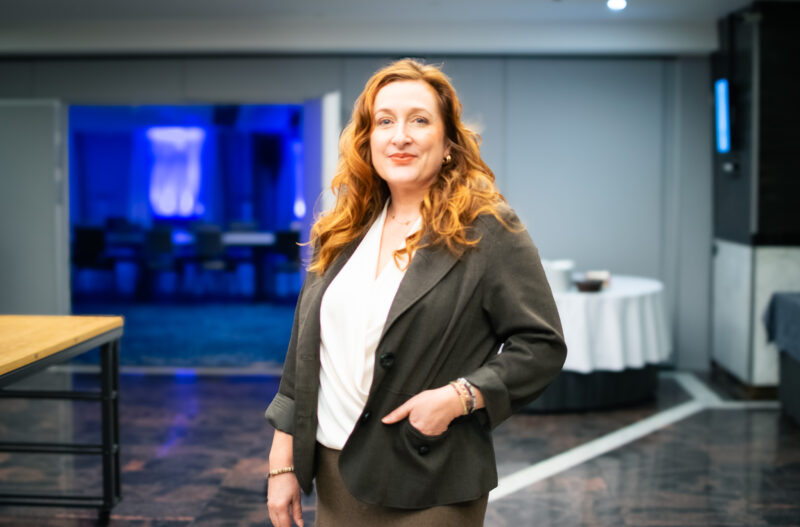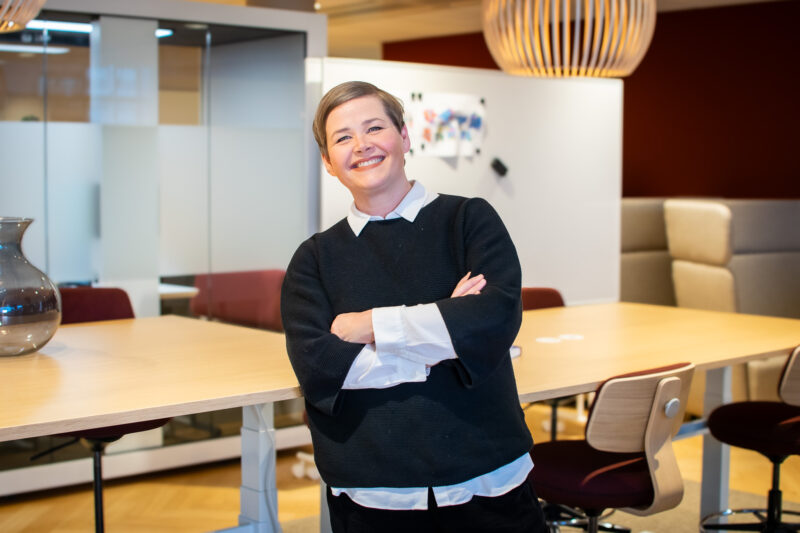Responsibility in the technology sector starts with people
The business operations of technology companies have significant social and societal impacts — and for this reason, their efforts in responsibility must focus on people, argue Sofigate’s Anna de Torres and Marika Mertala.
Most companies have had some form of responsibility program for years. However, the level of commitment to corporate responsibility varies.
Often, problems stem from insufficient commitment. Even if senior management and the sustainability team consider business sustainability to be of utmost importance, other departments may place much less emphasis on the issue. Many stakeholders may not even be aware of the company’s goals in its responsibility efforts.
A true competitive advantage from responsibility only arises when it genuinely involves the entire company. This requires that the company’s responsibility strategy is developed holistically: top-down, bottom-up, and laterally. The strategy must be mandated by the company’s senior management, but at the same time, it must allow for input from all levels of the organization and all stakeholders.
In many industries, involving people in defining sustainability opens eyes to what is most crucial in a company’s sustainable business practices. Particularly in the technology sector, many companies have primarily focused their sustainability efforts on environmental impacts—even though their operations often have a significant effect on people and society.
At the core: the impact of technology on people
To clarify Sofigate’s sustainability strategy, an effective task force was assembled from different functions of the company. The task force drew on a wealth of information gathered through interviews with clients, partners, investors, and other stakeholders. The involvement of the various stakeholders in the sustainability reflection process reinforced, above all, the perception that the responsibility of a business technology company focuses on its social impact.
While environmental impacts must be considered in all business activities, the four focus areas of Sofigate’s sustainability strategy – social value creation, knowledge enhancement, human well-being, and ethical business practices – are all fundamentally about the relationship between technology and people.
Sofigate’s business technology projects, implemented in partnership with its clients and partners, create social value by making both businesses and public organisations more efficient and improving the lives of their employees and end-customers. This underlines the responsibility to ensure that technology is used correctly and ethically.
The responsibility of a technology company is therefore to promote a broad understanding of technology and its impacts. For example, Sofigate organises open and free AI Living Lab workshops to explore the potential of generative AI through hands-on experiments. Similar training sessions, open to anyone, are also available on the Business Technology Standard framework, promoting the responsible use of business technology.
Holistic well-being requires psychological safety
The sustainable use of technology requires that people working with technology feel that they are doing meaningful work in a community that respects their values and considers their individual life situations. Sofigate’s corporate culture is therefore increasingly focused on the physical and mental well-being of its employees, alongside the continuous development of skills.
Comfortable working spaces that take into account different needs and individually flexible working hours are part of the overall well-being. At the same time, concerns about workloads and mental well-being are becoming increasingly important.
The technology sector has long talked about employee skills and workloads, but the overall well-being of all employees and the right to a sense of psychological security have not always received the attention they deserve.
Sofigate has recognised that holistic well-being is only possible if every employee feels accepted exactly as they are. However, a culture of total well-being does not come about by itself; it places new demands on management, supervisors, and staff training.
Reporting is a tool, not an end in itself
The projects launched under Sofigate’s new sustainability strategy will follow the same principle as the one used to develop the strategy itself. The aim is to involve different views from different parts of the company and from different stakeholders. Sustainability should not be the responsibility of a small circle of people but should be a part of the everyday life of every employee.
However, a people-centred approach does not mean abandoning a goal focus. By defining KPIs for all projects and actions we ensure that plans are implemented. By communicating these KPIs internally and externally, we promote long-term commitment from both our staff and our stakeholders. In addition, the measures will become part of the day-to-day business operations and everyone’s work.
In many companies, awareness of expanding reporting obligations has been a powerful catalyst for sustainability work. It has prompted companies to update their sustainability strategies and develop systems to implement reporting. However, reporting should not be the ultimate goal of sustainable business. Nor should it consume resources from the practical implementation of sustainability work.
When organised effectively, sustainability reporting generates data that can be used by the company to improve its processes and its overall performance. At the same time, this data can be shared with stakeholders and partners. This way, reporting supports what sustainability in a technology company and in business as a whole is fundamentally about: using technology to help people.
Read more:
Director, are you the weakest link in your organisation’s business development?
Why soft values are hard values – and why people-centred management benefits the customer
Authors
Anna de Torres is Sofigate’s Head of Communications and People. In addition to HR, she has worked in communications, marketing, and business strategy, and studied positive psychology. Anna is passionate about helping and supporting individuals and organisations to achieve their best, fostering a good team spirit and a growth mindset.
Marika Mertala believes that leading people is first and foremost about responsibility. In her role as Sofigate’s Employer Branding and Recruiting Lead, she specialises in building work environments and cultures that emphasise employee wellbeing to achieve results.


